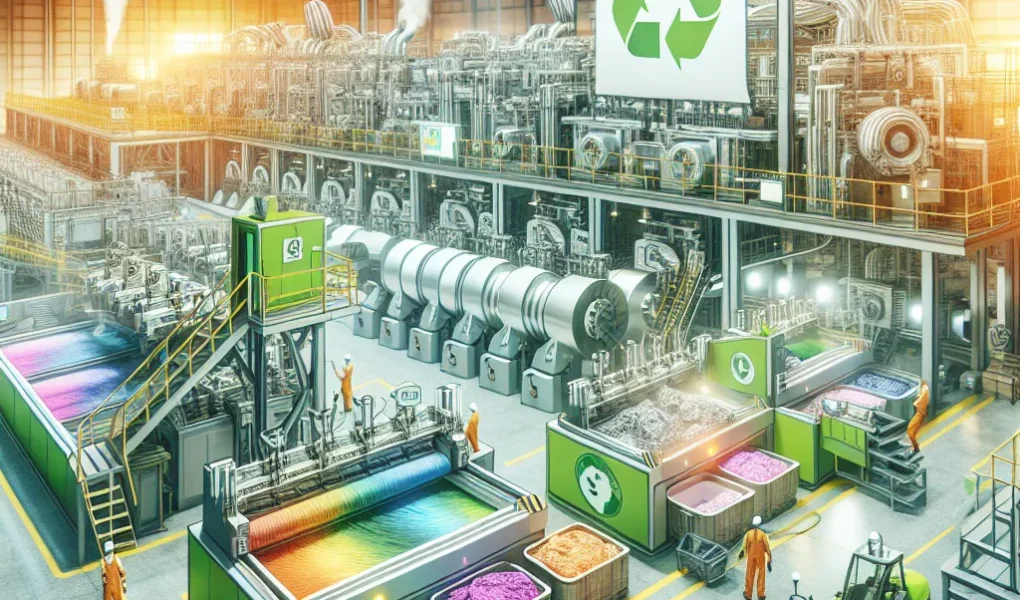The Impact of Sustainable Materials on T-shirt Production
When it comes to modern t-shirt production, the choice of materials plays a crucial role in determining the overall sustainability of the process. The impact of sustainable materials on t-shirt production is multifaceted, encompassing environmental, social, and economic aspects.
One of the key aspects of sustainable materials in t-shirt production is the reduction of environmental impact. The use of organic cotton, recycled polyester, hemp, and Tencel are gaining momentum in the industry due to their significantly lower environmental footprint compared to conventional materials. Organic cotton, for example, is grown without the use of synthetic pesticides and fertilizers, reducing water consumption and preventing harmful chemicals from entering the ecosystem. Similarly, recycled polyester reduces the dependence on virgin petroleum-based materials and minimizes waste in landfills. These sustainable materials not only decrease the environmental impact of t-shirt production but also contribute to conserving natural resources.
Furthermore, the use of sustainable materials in t-shirt production also has a positive effect on social aspects. By opting for certified organic or fair trade cotton, t-shirt manufacturers can ensure better working conditions for farmers and workers in the supply chain. This supports ethical labor practices and helps uplift communities involved in the production process. Additionally, sustainable materials encourage transparency and traceability, allowing consumers to make more informed choices and support ethical and responsible brands.
From an economic perspective, the integration of sustainable materials in t-shirt production presents opportunities for innovation and differentiation in the market. As consumer awareness regarding sustainability grows, there is an increasing demand for eco-friendly and ethical products. T-shirt manufacturers that prioritize sustainable materials can capitalize on this trend, establishing a competitive edge and enhancing brand reputation.
In conclusion, the impact of sustainable materials on t-shirt production extends beyond environmental benefits, encompassing social and economic dimensions. Embracing sustainable materials in the production process not only reduces the carbon footprint but also fosters ethical practices and opens new avenues for business growth.
Embracing Eco-Friendly Fabrics in Modern T-shirt Designs
Embracing eco-friendly fabrics in modern t-shirt designs has become an essential aspect of sustainable practices in the fashion industry. Manufacturers and designers are increasingly turning to innovative and environmentally conscious materials to create stylish and comfortable t-shirts while minimizing the negative impact on the planet.
One of the key sustainable materials gaining popularity in t-shirt production is organic cotton. Cultivated without the use of synthetic chemicals and pesticides, organic cotton significantly reduces environmental harm and promotes biodiversity. Its use in modern t-shirt designs not only contributes to a cleaner and healthier planet but also offers consumers a natural and skin-friendly option.
Bamboo fabric is another eco-friendly material making waves in modern t-shirt production. As an exceptionally renewable resource, bamboo grows rapidly and requires minimal water and no pesticides. Fabrics derived from bamboo offer breathability, moisture-wicking properties, and a luxuriously soft feel, making them ideal for sustainable t-shirt designs that prioritize comfort and practicality.
Recycled polyester, crafted from post-consumer plastic bottles and other recycled materials, is revolutionizing the t-shirt industry by providing a durable and versatile fabric option. Incorporating recycled polyester into modern t-shirt designs helps divert plastic waste from landfills and oceans while offering high-performance attributes such as moisture management and stretch.
Furthermore, innovative materials like Tencel, made from sustainably sourced wood pulp using a closed-loop production process, offer exceptional softness and drape for modern t-shirt designs. Tencel fabrics are biodegradable and promote sustainable forestry practices, aligning with the growing demand for environmentally responsible t-shirt materials.
Incorporating these eco-friendly fabrics into modern t-shirt designs not only meets the rising consumer preference for sustainable clothing but also establishes a positive impact on the environment. By embracing these materials, fashion brands and t-shirt manufacturers can contribute to a greener and more sustainable future for the industry while offering consumers a wide range of stylish and eco-conscious choices.
Innovations in Environmentally Conscious T-shirt Manufacturing
As the fashion industry continues to embrace sustainability, innovations in environmentally conscious T-shirt manufacturing are making significant strides towards reducing the environmental impact of clothing production. Sustainable materials and designs play a crucial role in revolutionizing modern T-shirt production, paving the way for a more environmentally friendly approach.
One of the key innovations in environmentally conscious T-shirt manufacturing is the utilization of organic and recycled materials. Organic cotton, for example, is cultivated using methods that minimize the use of toxic pesticides and synthetic fertilizers, thereby reducing harm to the environment. Additionally, recycled polyester, made from post-consumer plastic bottles, offers a sustainable alternative to traditional polyester, diverting plastic waste from landfills and oceans.
Designs that prioritize longevity and versatility are also shaping the sustainable T-shirt manufacturing landscape. By creating T-shirts with timeless styles and durable construction, fashion brands are promoting a more sustainable consumption pattern, reducing the frequency of T-shirt replacement and minimizing textile waste.
Furthermore, advancements in dyeing and printing technologies are enhancing the eco-friendliness of T-shirt production. The implementation of innovative dyeing techniques, such as digital printing and natural dye processes, reduces water consumption and minimizes the release of hazardous chemicals into the environment, making T-shirt manufacturing more sustainable.
In conclusion, the integration of innovations in environmentally conscious T-shirt manufacturing, including the use of sustainable materials, durable designs, and eco-friendly dyeing processes, is driving positive change in the fashion industry. By prioritizing sustainability in T-shirt production, fashion brands are not only reducing their environmental footprint but also setting a new standard for responsible and ethical manufacturing practices.
Designing for Change: Sustainable Practices in T-shirt Production
Designing for Change: Sustainable Practices in T-shirt Production
In the modern fashion industry, the concept of sustainable materials and designs has gained significant traction, especially in the production of t-shirts. Designing for change in t-shirt production involves implementing sustainable practices that minimize environmental impact and ensure ethical treatment of workers throughout the supply chain.
One of the key aspects of sustainable t-shirt production is the use of eco-friendly materials such as organic cotton, bamboo, hemp, and recycled polyester. These materials not only reduce the reliance on conventional cotton, which often involves heavy pesticide use, but also contribute to lower carbon footprint and reduced water consumption.
Furthermore, sustainable designs in t-shirt production emphasize longevity and multifunctionality. This approach involves creating timeless designs that transcend seasonal trends, thereby reducing the likelihood of garments becoming outdated and contributing to textile waste. Additionally, designing t-shirts with versatile styling options encourages consumers to maximize the use of each garment, promoting a more sustainable wardrobe.
In terms of production processes, the implementation of efficient and eco-friendly practices is crucial. This includes resource-efficient printing techniques, such as water-based and digital printing, which minimize the use of harmful chemicals and water waste. Moreover, embracing ethical labor practices and ensuring fair wages for workers contribute to the overall sustainability of t-shirt production.
By adopting sustainable materials and designs, t-shirt production can embrace positive changes that benefit the environment, workers, and consumers. Ultimately, designing for change in t-shirt production leads to a more environmentally conscious and socially responsible industry.
The Future of Fashion: Integrating Sustainability into T-shirt Design
As the fashion industry continues to evolve, there is a growing focus on integrating sustainability into all aspects of production, including T-shirt design. Sustainable materials and designs have become a key focus for modern t-shirt production, as the industry seeks to reduce its environmental impact and create a more ethical supply chain. The future of fashion lies in the integration of sustainable practices, and this includes the design and manufacturing of t-shirts.
One of the key aspects of integrating sustainability into t-shirt design is the use of eco-friendly materials. This includes organic cotton, which is grown without the use of harmful pesticides and chemicals, as well as recycled polyester, which reduces the need for new raw materials. Additionally, innovations in fabric technology have led to the development of materials made from sustainable sources such as bamboo, hemp, and even pineapple leaves, offering alternative options for t-shirt production.
Besides the materials used, the design process itself plays a crucial role in creating sustainable t-shirts. This can involve creating timeless designs that are meant to last, utilizing techniques such as modular design to allow for easy repairs and alterations, and ensuring that the entire lifecycle of the t-shirt, from production to disposal, is taken into account. By integrating these aspects into the design process, fashion brands can create t-shirts that are not only stylish but also environmentally conscious.
In conclusion, the future of fashion, especially in the production of t-shirts, lies in the integration of sustainable materials and designs. By prioritizing eco-friendly materials and incorporating sustainable design practices, the fashion industry can move towards a more environmentally friendly and ethical approach to t-shirt production.



